
The Revolutionary Years 1775-1789 The Art of American Power During the Early Republic By William Nester
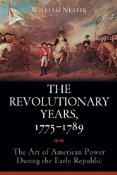 William Nester has written a short but well researched book about the revolutionary years. Nester’s focus is on the unique convergence of politics, diplomacy, colonial fortitude and leadership that molded the new nation into what it would become.
William Nester has written a short but well researched book about the revolutionary years. Nester’s focus is on the unique convergence of politics, diplomacy, colonial fortitude and leadership that molded the new nation into what it would become.
Part 1 of the book covers the years 1775 to 1781 and the colonial transformation from conciliation and reform to independence and revolution. During this period and the one that followed it the new nation was deficient in all manifestations of power—too few men, insufficient arms, and little money. What it did have were exceptional leaders, moral certainty, and devotion to the cause.
The author traces the conduct of the war on both sides. British arrogance, failure to pursue the retreating American army after battlefield victories, the attempt to run the war from Whitehall and the eccentricities of key players helped the American cause. George Washington’s early tactical mistakes, superior British numbers and the congressional penchant for picking generals “for their prowess at politics rather than war,†worked in Britain’s favor.
Nester uses Congressional treatment of Benedict Arnold as an example. The abrasive Arnold was repeatedly passed over for promotion in favor of well-connected mediocrities despite Arnold’s demonstrated heroism and mastery of strategy and tactics. This result was almost disastrous for the American cause.
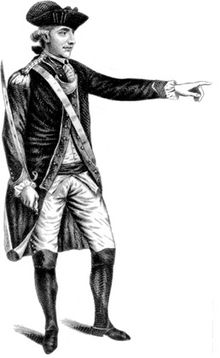 The author writes, “Arnold would eventually become so disillusioned that would seek vengeance, power, and riches by betraying his country.â€Â It was only by happenstance that British Major John Andre, the intermediary between Arnold and General Clinton, was picked up by an American militia patrol. The plot to surrender the fortress at West Point and capture George Washington was thus revealed. Arnold fled to the British lines and collected his (more than) 30 pieces of silver, a commission and a command in the British Army. Had Washington been captured the outcome of the war would have been very different.
The author writes, “Arnold would eventually become so disillusioned that would seek vengeance, power, and riches by betraying his country.â€Â It was only by happenstance that British Major John Andre, the intermediary between Arnold and General Clinton, was picked up by an American militia patrol. The plot to surrender the fortress at West Point and capture George Washington was thus revealed. Arnold fled to the British lines and collected his (more than) 30 pieces of silver, a commission and a command in the British Army. Had Washington been captured the outcome of the war would have been very different.
The Revolution succeeded because of the stubborn grit of ordinary men whose habits of self determination had been formed by the colonial experience and who were willing to fight to defend their rights as free men. However, Nester writes that winning the war with an army made up of farmers and shop keepers would not have been possible without the leadership and organizational skills of George Washington or the money and arms supplied by the French.
France perceived the war as an opportunity to wear the British down by diverting arms and attention to fighting the American rebellion. France was also fearful that if the British succeeded in quashing the rebel cause, and France had aided the Americans, British guns would be turned upon France. French Foreign Minister Charles Gravier, the comte de Vergennes embarked on a policy of secretly aiding the rebellion with munitions and other war supplies. He persuaded Spain to aid the Americans for similar reasons. However, both nations opposed American independence and sought to limit its territorial expansion.
Providence also played a role. As recounted by David McCullough (1776) weather favored the American cause when Washington’s army crossed the Delaware River to fight and win the Battle of Trenton.
Nester writes that in the aftermath of the battle of Yorktown, nature again interceded. When American and French forces pierced the British lines, Cornwallis secretly prepared his army to be rowed across the York River to Gloucester.
A storm blew in, battered the boats, and made the crossing impossible. Cornwallis surrendered the British Army to the Americans and the British flotilla to the French…. Yorktown would truly prove to be the beginning of that long war’s end.
Part 2 of the book covers the years 1781-1789.
Congress knew that they needed recognition, trade treaties and alliances with European states to survive as a sovereign nation.
The United States had been willing to trade away virtually anything at the diplomatic table in return for official recognition of independence. This included not merely Mississippi River navigation rights to the sea, but even a United States that stretched westward as far as that distant river.
Nester writes that the French essentially controlled American foreign policy in 1781-1782. Among other items, the French were insisting that the United States be more an observer than a participant in the armistice and that peace would be signed with each of the 13 states separately. John Jay was appalled and wrote in protest to Congress,
As an American I feel an interest in the dignity of my country, which renders it difficult for me to reconcile myself to the idea of the sovereign independent United States submitting …to be absolutely governed by the advice and opinions of another sovereign nation.
Vergennes was confident he could control the peace process. However, he did not reckon on the American negotiators virtually ignoring congressional instructions. American success was very much a product of the cunning of Benjamin Franklin. The story of how Franklin and his colleagues prevailed despite the best efforts of Vergennes is one of the most fascinating chapters in the book.
|
|
|
|
Forming a new nation despite the conflicting interests of fractious states; circumventing the intrigues of foreign nations; satisfying pressing war debts with an exhausted treasury, and pacifying restive Indians seems an impossible task.
The Founders argued about how to preserve the liberty that had been so hard won. Yet, although they were divided on many issues, the Constitution embodied the values they shared and created a nation.
Learned men avidly read and tried to apply the liberal political philosophy expressed by the spectrum of Enlightenment writers, especially John Locke, Charles de Secondat, the baron de Montesquieu. They were also steeped in the classical works of Aristotle, Cicero, Tacitus, Livy and Plutarch, who taught them that republican institutions were only as strong as the virtues of the men who ran them.
Nester writes,
Few have captured the essential values of American culture as well as Jean Hector de Crevecoeur, a Frenchman who settled in the United States:
‘What then is this American, this new man? He is an American, who is leaving behind him all the ancient prejudices and manners, receives new ones from the new mode of life he has embraced, the new government he obeys, and the new rank he holds…Here the individuals of all nations are melted into a new race of men, whose labours and posterity will one day cause great changes in the world …’
The book’s subtitle The Art of American Power During the Early Republic could as well be The Roots of American Exceptionalism. In this book Nester explains, with clarity and insight, how a unique national political culture was created during those fateful critical years.
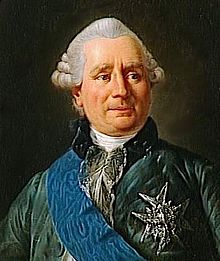
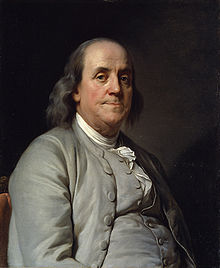
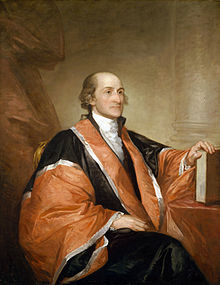
 The posts are coming!
The posts are coming!

2 comments
Say Marcia,
Glad to see you back. Been wondering how you were and where you’ve been.
[Reply]
Thanks Jeff. I just need to read faster!
[Reply]
Leave a Comment